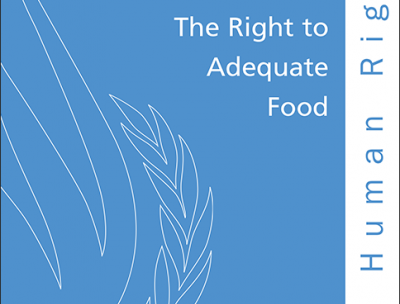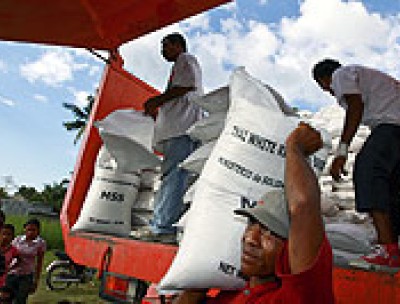OHCHR and the right to food

Key aspects of the right to food
The four key elements of the right to food are:
- Availability: Food should be obtainable from natural resources, either through the production of food, by cultivating land or animal husbandry, or through other ways like fishing, hunting or gathering. Food should be on sale in markets and shops.
- Accessibility: Food must be affordable. Individuals should be able to have an adequate diet without compromising on other basic needs, such as school fees, medicines or rent. Food should be accessible to the physically vulnerable, including children, sick people, people with disabilities and the elderly. Food must also be available to people in remote areas, to victims of armed conflicts or natural disasters, and to prisoners.
- Adequacy: Food must satisfy dietary needs, taking into account a person’s age, living conditions, health, occupation, sex, etc. Food should be safe for human consumption and free from adverse substances.
- Sustainability: Food should be accessible for both present and future generations.
Other human rights and the right to food
The human right to adequate food is crucial to the enjoyment of all rights, including:
- The right to health: When a pregnant woman is denied access to nutritious food, for example, she and her baby can be malnourished, even if she receives prenatal care.
- The right to life: When people are not able to feed themselves and face malnutrition and resulting illnesses or death by starvation, their right to life is at stake.
- The right to water: Without safe water for drinking, food preparation, and household hygiene, the right to food is out of reach.
- The right to adequate housing: When a house lacks basic amenities, such as for cooking or storing food, the right to adequate food of its residents may be undermined. Also, when the cost of housing is too high, people may have less money to spend on food.
- The right to education: Hunger and malnutrition impair children’s learning abilities, and may force them to drop out of school, thus undermining their enjoyment of the right to education. People need to know how to maintain a healthy diet and have the skills and capacity to produce or obtain food.
Learn more about the key aspects, common misconceptions, implications for individuals and groups, and the obligations of States with respect to the right to food in the key documents below.
OHCHR’s work on promoting the right to food
We work to protect and promote the right to adequate food in the following ways:
- Disseminating the international human rights standards and principles related to the right to food
- Providing advice and assistance to States on laws, policies and action plans to promote the enjoyment of the right to food
- Engaging intergovernmental bodies to ensure human rights norms inform and guide food related policies, such as our work with the CFS
- Mainstreaming human rights in UN agencies’ work and programmes to promote the realization of the right to food
- Supporting the work of civil society and social movements, including small scale farmers, in claiming the right to food
- Clarifying the right to food as it applies to specific groups such as women, indigenous peoples and peasants
Key documents
The Right to Adequate Food, OHCHR Fact Sheet No. 34, OHCHR/FAO

